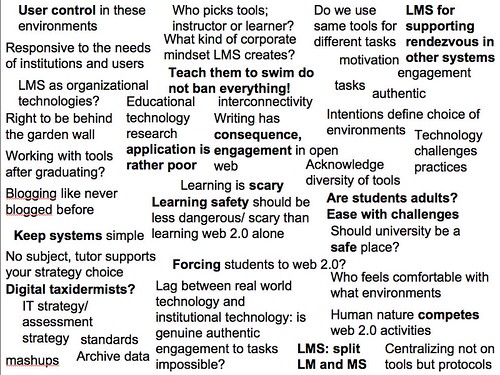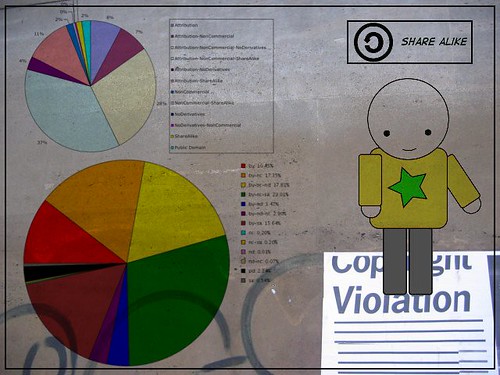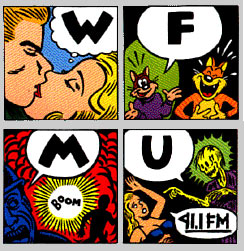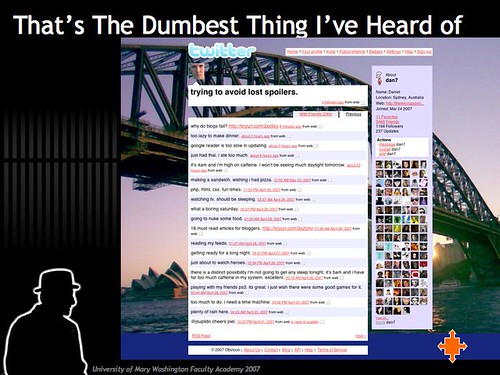One of the benefits of being based in Vancouver is that over the course of a typical year at least three or four major events will take place that don’t involve travel. (Although typically, it’s harder to truly engage a local happening, harder to get clear of the office, etc…) This week I am attending Ed-Media, a huge conference with a very international flavour, and a certain kind of academic air. Kind of strange in a lot of respects, most sessions I have seen are very straight presentations of papers with little discussion, maybe a bit of Q&A if time permits.
So I give serious props to Sebastian Fiedler for his vision for a symposium. He urged six presenters to keep the formal presentations as short as possible, keeping lots of time open for follow-up discussion.
The session was entitled “Getting beyond centralized technologies in higher education” and I was personally very pleased with how it all went. Sort of a hybrid between a traditional seminar and a hootenanny — a good combination of focus and spontaneity, it struck a balance that I would like to approach again for future events.
I recorded some quick ‘n dirty audio, though the levels were very uneven (and generally inaudible) because the presenters were moving about the room a fair bit. I did some post-production tweaking, but be warned, the quality of the files below varies quite a bit. Apologies.
* Sebastian Fiedler – contrasted the immense difficulties of coordinating higher education activities that are centred around learning management systems (which still do not generate RSS feeds, for example) with the relative ease enjoyed by users of social software tools, allowing them interact while making their own platform choices. [Sebastian’s audio (MP3)]
* Robert Fitzgerald – reviewed a number of elements relating to LMSs, their function within the insitution, and how they intend to support a “pedagogy of the answer” as opposed to a more critical “pedagogy of the question.” Pointed to Produsage, a concept that is new to me. Discussed potential for distributed personal tools to provide welcome and constructive disturbance within higher education. [Rob’s audio (MP3)]
* Scott Wilson, in an historically-grounded analysis, noted how large centralized systems tend to ‘create their own momentum’ institutionally, in which the IT needs of the systems get out ahead of the organization’s real needs. A model that stresses “user-owned technology” actually promises “an escape route from escalating costs, liabilities, etc… that come from supply-driven model.” This was a rare seminar presentation that actually made me want to read the associated paper, one which essentially provides an institutional process for extricating itself from the grips of big central systems. [Scott’s audio (MP3)]
* I didn’t do as good a job as the others at keeping my section short (shame-faced apologies all-round). As it was, I blasted through my bit on mashups so quickly I nearly hyperventilated. I stood next to the audio recorder (because I needed to manipulate my wiki on the laptop) so my audio is clearer than most (honestly, I’m not fiendishly enhancing myself to level the playing field with my more lucid co-presenters!). [Brian’s audio (MP3)]
* Kai Pata – a learning environment is not just a set of tools, but roles, activities and activity patterns. And do all the participants and stakeholders see the systems the same way? If people can choose their tools, we can’t assume a common toolset. But based on activity patterns, we can think in terms of recommending certain affordances. [Kai’s audio (MP3)]
* It seems insane that this was my first meeting with George Siemens, he’s been an integral cog in my blogosphere for nearly five years, and he’s a western Canadian to boot. He delivered an amusing and engaging riff on strategies for an age of overwhelming information abundance. He reviewed a number of tools and strategies for doing so, stressing the need to learn how to interact with patterns of information, and to let go of our instinctive need to directly engage every piece of information. [George’s audio (MP3)]
The second half of the symposium was more or less freeform discussion, and it really was awesome. Lots of mindbending points from the facilitators and participants (who were very engaged). Alas, the audio here is even more uneven… if I get time [cue hysterical laughter] I may try to do what Draggin did with the Hootenanny audio and try to extract the audible bits and mash them together.
Kai took live notes into a PowerPoint slide, which I uploaded to Flickr and posted above.
I didn’t take proper notes, bit did some Twittering, excerpted below:
* Scott W: ‘from origins of the web, educators have developed bad habit of needing a separate set of educational tools, our own internal web.’
* George S: ‘the best way to keep our kids from drowning is to teach them to swim, not trying to keep them away from water.’
* Scott W: ‘learning an LMS is harder than learning the web, and the skills acquired are non-transferable. All students learn is to use an LMS.’
* Scott W: ‘Rather than providing an enclosed whole platform, educational institutions might fulfill historic role to promote rendezvous points.’
* From an unknown attendee: the wonderful phrase “digital taxidermists” — describing the unfortunate tendency of educators to suck the life out of online applications and communities.
* Terry Anderson made an interesting point that when given a choice (in ELGG) most students prefer to have their course interactions private. (Fair enough, but does that mean all course content needs to be hidden away? – BL)
* George S: ‘instead of centralizing the tool set, we should strive to centralize the protocols for data flow (RSS) and push open standards…’
Ahh, if only Bryan Alexander hadn’t been laid out by a Texas flu bug… I think he would have made a great fit here.
And as is so common, as much as I learned during the session itself, I got so much more out of the pre and post-symposium interactions with the rest of the group. I had never met any of these people before, so it was a real privilege on so many levels. They are all evidently very smart, but even more impressively easygoing, unpretentious and great fun to hang out with. My head is still spinning. I hope I see more of this group in the future.







